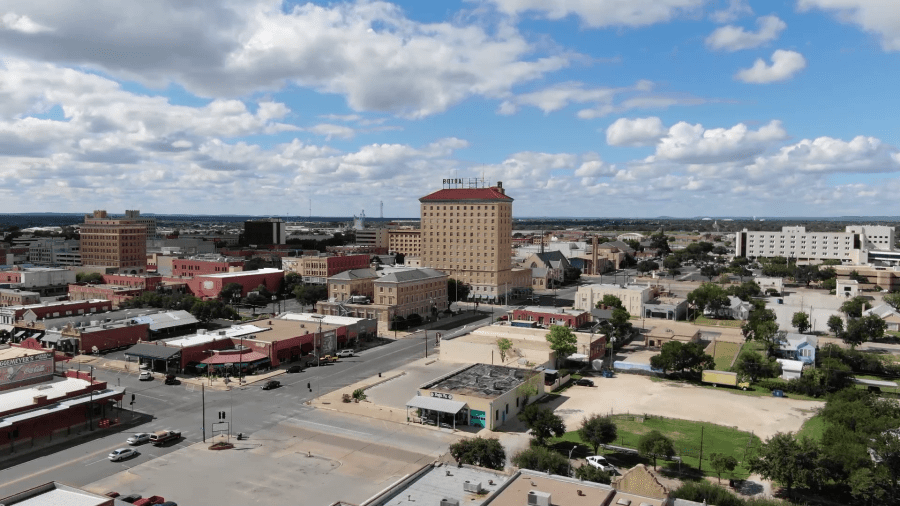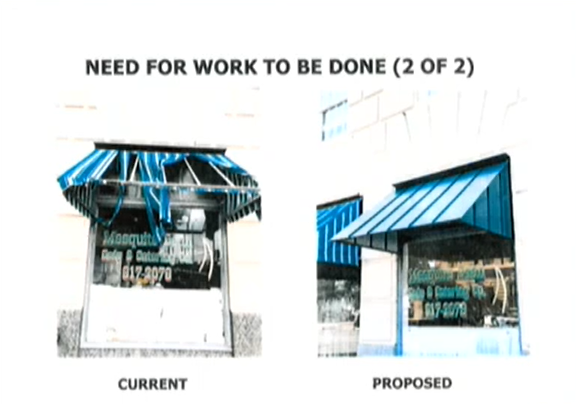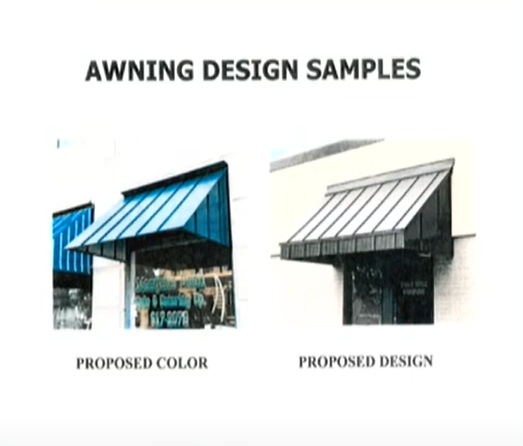The Cactus Hotel was almost renovated. What happened?

SAN ANGELO, Texas (Concho Valley Homepage) — A staple of San Angelo’s skyline almost saw the start of a renovation program after the City Council discussed a proposed project during its Feb. 6 meeting. But why was the renovation brought up, and what caused it to fall through?
The suggestion to update parts of the historic hotel’s exterior came as part of an agenda item asking the City Council to “consider approving Tax Increment Reinvestment Zone funding for six South TIRZ private projects totaling $377,462.42,” according to the City’s agenda for the meeting. The Cactus Hotel was among the six locations proposed for TIRZ-funded private renovation projects, with the other locations being as follows:
The Spur Building, located at 40 W. Twohig Ave.
Plateau Brewing, located at 214 S. Chadbourne St.
Jost Landscaping, located at 202 N Martin Luther King Blvd.
Blue Buffalo Art Gallery, located at 123 N Chadbourne St.
Clarion Hotel, located at 441 Rio Concho Drive
The Cactus Hotel project’s applicant requested $75,000 in funding, which the City’s TIRZ Board recommended funding at 100% as part of its unanimous vote held on Jan. 23, 2024, for all six projects.
The Cactus Hotel renovation work program was defined by three distinct parts, with each part restoring or replacing different aspects of the hotel. According to documentation found within the City’s Feb. 6 meeting agenda, these parts are as follows:
Restore the 18 awnings attached to the east and south faces of the building by replacing the tattered/missing cloth with a custom-fabricated metal material. This process will also entail cleaning, repairing and painting the awning framework.
Paint (to match the existing color) the first-floor doors, window trim, awning framework and metal infrastructure.
Replace current, outdated/worn-out facade door frameworks with ADA door entry systems to include an ADA security locking system. This upgrade will enhance the building and tenant security and enable the use pattern of the building to be converted from a single owner/user to a multi-user property.
An image used in the presentation given to the City Council depicting the proposed changes to the Cactus Hotel’s awnings. Image courtesy of the City of San Angelo. An image used in the presentation given to the City Council depicting the proposed changes to the Cactus Hotel’s awnings. Image courtesy of the City of San Angelo.
The narrative proposed project criteria documents also found within the agenda cited multiple reasons for seeking to initiate the renovation program, including repairs, security concerns, ADA compliance and historic preservation.
“This Project is primarily motivated by the need to replace the damaged awnings around the street-level facade of the Cactus Hotel and the urgent need to increase the level of security for the building and its tenants,” the narrative documentation reads. “When the Cactus restoration is completed, the completed facade will positively reflect on the built environment provided by the recently completed Shannon Pharmacy and Oncology Complex.”
Below is the relevant documentation for the proposed Cactus Hotel project:
While the other five projects went mostly without question or concern by the City Council, the proposed renovations to the Cactus Hotel caught the eye of a few of the council members. One concern raised by the City Council was the building’s age, which some worried would naturally conflict with ADA compliance and warrant further investigation before any renovations could be done.
“Oftentimes those older buildings have hurdles for people with mobility problems to tackle — curbs, steps up to the building and so on,” District 1 Councilman Larry Miller said. “I would hope that there’s some investigation done before we let this money out to them to make sure that it’s feasible to have them ADA [compliant].”
Public comments would also sway the City Council’s decision. Zane White, a citizen from District 6, discussed records with the City Council found in the Design and Historic Review Commission and TIRZ Board’s archives that revealed that the council had already approved of the metal awnings in January 2023.
However, White also found that a previous meeting discussing the renovations contained misstatements and misrepresentations given to the DHRC that could void the current $75,000 contract entirely. Specifically, White pointed out that the term “canopies” used to describe the renovations to the Department of Interior Guidelines in reference to an allowance has a different legal meaning than “awnings,” a distinction that could jeopardize the project’s funding and potentially cost the City thousands of dollars if not adhered to.
“There is no replacement of ‘canopies,’ there’s a structural difference between canopies and awnings. That alone should wipe this out,” White said. “I’m encouraging you to go back, start from scratch, cross your t’s and dot your i’s and come back to it.”
City calls for 2024 police chief election — here’s who’s running thus far
Furthermore, White cited that rules made by the National Park Service’s Secretary of the Interior Guidelines for Historic Properties heavily limited what repairs could be done and which materials and items could be used. Since the Cactus Hotel’s designated restoration period is 1929, the secretary’s rules need to be followed in reference to that time period.
“Deteriorated features from the restoration period will be repaired rather than replaced,” White said, quoting the Secretary of the Interior Guidelines for Historic Properties. “Where the severity of deterioration requires replacement of a distinctive feature, the new feature will match the old in design, color, texture and, where possible, materials.”
White argued that the metal awnings don’t follow these rules due to being “historically inappropriate” and, as such, would put the City at risk of legal consequences.
After some deliberation about how these alleged issues came to pass and whether they were valid, members of the City Council decided to err on the side of caution. They amended their motion to exclude the Cactus Hotel from the list of proposed renovations and voted on it, voting 5-0 in favor of approving the projects.
“We can’t just leave it up to personal opinion, or else we give up what is truly a historic district,” Mayor Brenda Gunter said. “We can’t be ‘kind of’ a historical district with exceptions to that, we either are or we aren’t.”
For the latest news, weather, sports, and streaming video, head to ConchoValleyHomepage.com.



